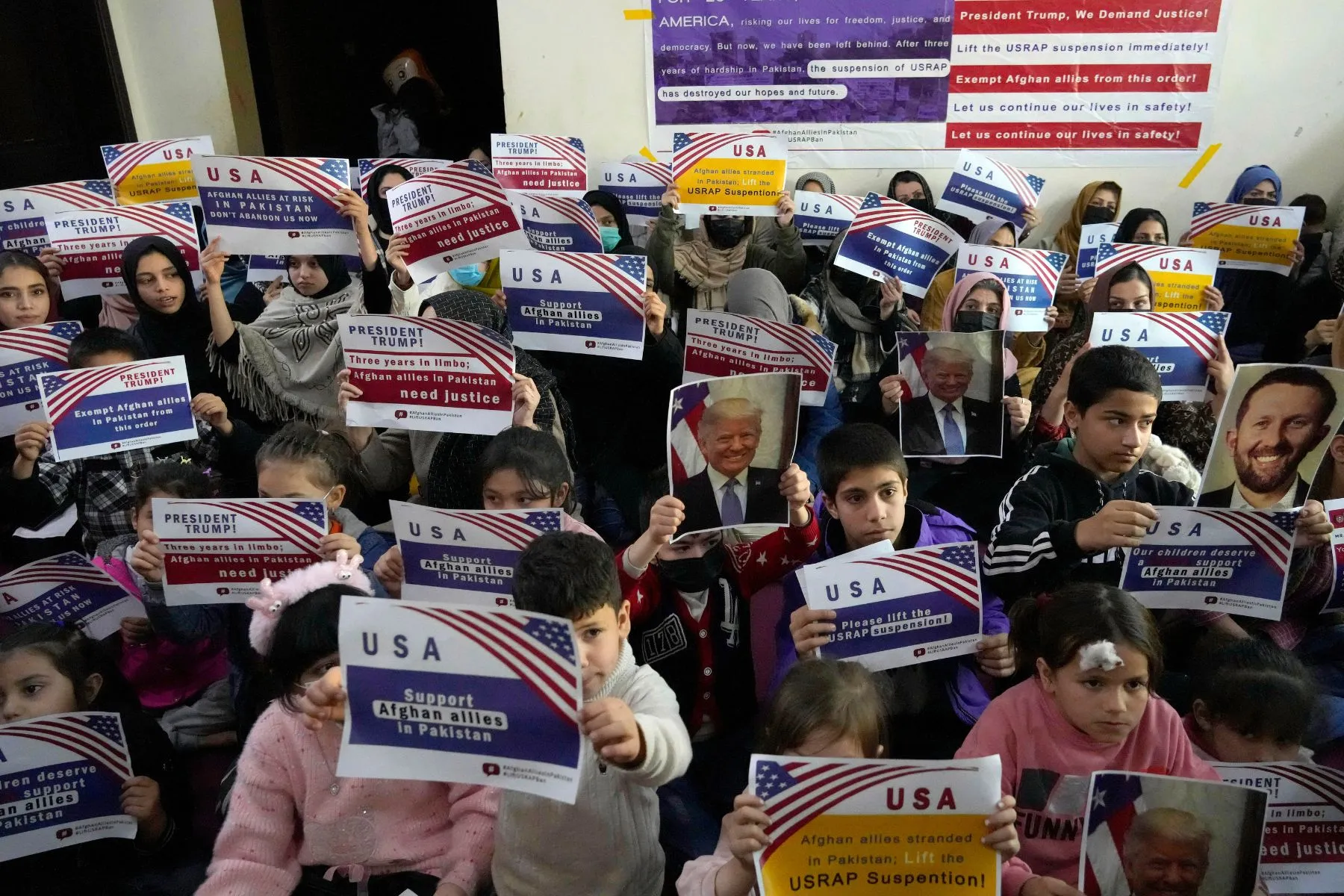
Revised Trump travel ban will have immediate impact on Minnesota
How did your country report this? Share your view in the comments.
Diverging Reports Breakdown
Revised Trump travel ban will have immediate impact on Minnesota
The travel ban, which goes into effect on Monday, June 9, bans citizens of 12 countries, including Somalia, Eritrea, Sudan, Afghanistan and Myanmar from entering the U.S. It also restricts entry to citizens of seven other nations, including Laos and Venezuela. The travel ban disproportionately affects Minnesota, which has historically welcomed refugees and is home to large Somali, Sudanese and Karen communities. Some exceptions to the latest travel ban include those who have green cards or are dual citizens; refugees granted asylum; and some athletes taking part in major sporting events would be exempt from the ban. The Council on American-Islamic Relations called the policy Islamophobic and said it will upend the efforts of people going through the immigration process legally to reunite their families in the United States. The ban sends a message that ‘You cannot come to this country, that means you are unwanted, that weight by itself,’ said one immigration attorney who teaches at the Mitchell Hamline School of Law.
The head of Minneapolis nonprofit Ayada Leads started making calls.
“The previous travel bans left behind heartbreak — weddings missed, funerals unattended, futures put on hold,” she said. “These are not political abstractions. These are human stories, interrupted.”
The travel ban, which goes into effect on Monday, June 9, bans citizens of 12 countries, including Somalia, Eritrea, Sudan, Afghanistan and Myanmar from entering the U.S. It also restricts entry to citizens of seven other nations, including Laos and Venezuela.
The travel ban disproportionately affects Minnesota, which has historically welcomed refugees and is home to large Somali, Sudanese and Karen communities, among other groups. The Karen are an ethnic group from Myanmar.
“I was shocked,” said Mesfun Abreham of his first reaction after hearing that his home country Eritrea is one of the countries newly added to the travel ban list.
As a longtime pastor at Medhanie Alem Eritrean Evangelical Church in St. Paul, Abreham said he knows many Eritrean families who were expecting to see their relatives.
“But now I don’t think it’s possible for that to happen, so it’s very frustrating and it just hurts everybody,” he said.
Alexis Walstad, executive director of the Karen Organization of Minnesota, a social service agency serving refugees, said she has seen many families put years of effort into reuniting with relatives.
“It’s really sad to talk to them today and just feel with those frustrations and the sadness that their families won’t be able to come right now,” she said.
There are some exceptions to the latest travel ban, according to Trump’s announcement: Those who have green cards or are dual citizens; refugees granted asylum; Afghans who helped U.S. troops; and some athletes taking part in major sporting events would be exempt.
In addition, U.S. citizens would still be able to apply for spouses, children and parents to come from banned countries.
Trump’s announcement targets countries that have high rates of citizens overstaying their U.S. visas, or that the administration finds “deficient” in vetting visa holders, calling them threats to national security.
Ana Pottratz Acosta, an immigration attorney who teaches at the Mitchell Hamline School of Law, said the rate of those overstaying visas has “caused a lot of countries that I would have not have guessed would be on the travel ban list to be placed on the list.” She mentioned some of the banned African countries, including Chad, Equatorial Guinea and Eritrea.
During Trump’s first term, his travel ban faced legal challenges and some countries were introduced or removed from the list. However, the U.S. Supreme Court allowed the travel ban to take effect in 2017 and ruled to uphold the ban in 2018. When President Biden took office, he immediately revoked all travel bans.
Abdi Ibrahim, director of programs at the Center for African Immigrants and Refugees Organization, said that Trump’s reasons for a travel ban to protect national security is a “cover up” to unfairly discriminate against Muslims and immigrants of color.
Jaylani Hussein of the Minnesota chapter of the Council on American-Islamic Relations, called the policy Islamophobic and said it will upend the efforts of people going through the immigration process legally to reunite their families in the U.S.
“The delay for those family reunifications may mean some family members may never see their loved ones again,” Hussein said. “This will have a significant impact on families who are trying to get their loved ones here, and it will also increase the fear of travelling out of the country.”
The resurrection of the travel ban now means reliving the impacts of the 2017 ban, said Abdulle, of Ayada Leads.
She said beyond its practical effects, the decision to propose the ban sends a message to the communities that would be impacted.
“When there is a travel ban or some policy that tells you ‘You cannot come to this country,’ that has weight by itself,” she said. “That means you are unwanted, you are not someone who can fit in countries like the United States and there is something innately wrong with you.”
Source: https://sahanjournal.com/immigration/minnesota-impact-trump-revised-travel-ban/
